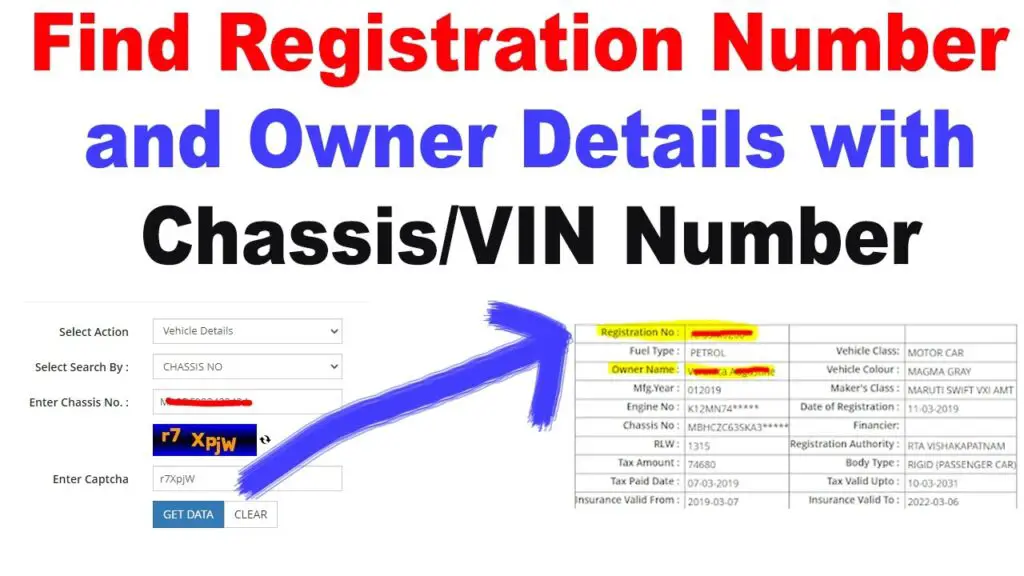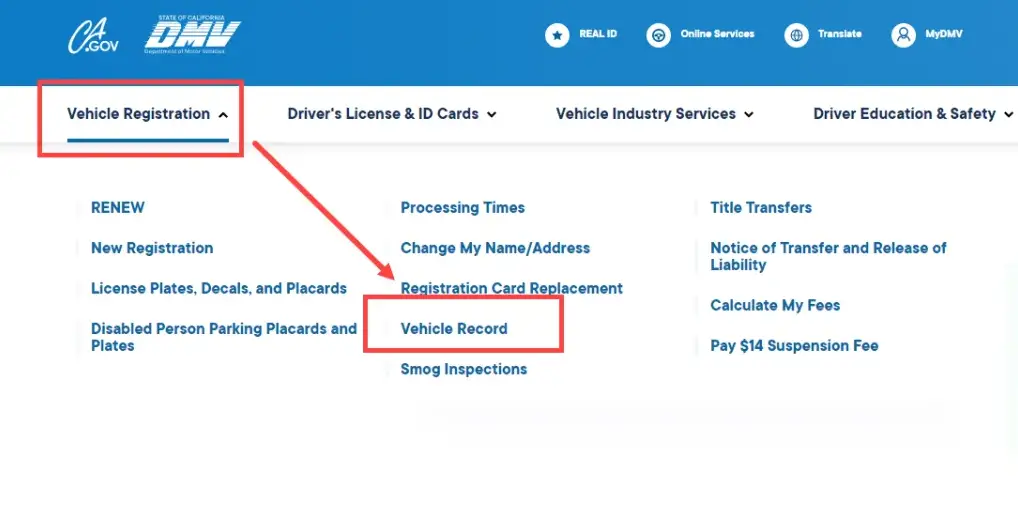How to find owner of car by VIN: You can’t access the current owner’s details directly, but you can obtain the car’s history, including past owners, through services like CARFAX or the DMV.
If you’re trying to find the owner of a car, you might have come across the Vehicle Identification Number (VIN). This unique 17-character code provides key details about a vehicle, but it doesn’t directly reveal personal information about the car’s owner. While the VIN is a valuable tool to learn about a car’s history, many people wonder if it’s possible to use it to identify the owner. In this blog post, we’ll explore how to find the owner of a car by VIN, the legalities involved, and the methods available to get information about the vehicle’s past owners.

Contents
- 1 What is a VIN?
- 2 Legal Aspects of Finding a Car Owner Using VIN
- 3 How to Find the Owner of a Car by VIN
- 4 Ethical and Legal Considerations
- 5 Frequently Asked Questions
- 6 Conclusion
What is a VIN?
A VIN, or Vehicle Identification Number, is a unique code assigned to every vehicle when it’s manufactured. The VIN serves as the vehicle’s fingerprint, providing specific details about the car’s make, model, engine type, place of manufacture, and more. The 17-character VIN code can tell you a lot about a car’s specifications, but it doesn’t typically include details about its current owner due to privacy laws.
Breakdown of a VIN:
- Characters 1–3: World Manufacturer Identifier (WMI) – Identifies the manufacturer.
- Characters 4–9: Vehicle Descriptor Section (VDS) – Provides details about the vehicle’s attributes (e.g., model, engine type).
- Characters 10–17: Vehicle Identifier Section (VIS) – Includes the model year, plant code, and unique serial number.
Legal Aspects of Finding a Car Owner Using VIN
Before diving into how you can trace the owner of a car using its VIN, it’s important to understand the legal aspects involved. Privacy laws, such as the Driver’s Privacy Protection Act (DPPA) in the U.S., protect personal information related to vehicle ownership. These laws restrict access to the owner’s information to ensure privacy is maintained.
In most cases, the VIN can be used to gather details about the vehicle’s history, including its registration and previous owners, but it cannot directly provide personal details of the current owner unless you have a legitimate need or reason for doing so.
In general:
- You cannot access the current owner’s name or personal details directly through a VIN.
- You can access vehicle history, including previous ownership, accident reports, and whether the car has been stolen or salvaged.
- You must follow legal procedures and have a legitimate reason for requesting certain information from governmental agencies or third-party services.
How to Find the Owner of a Car by VIN
The Vehicle Identification Number (VIN) is a unique code that provides essential details about a car’s specifications and history. While it doesn’t directly reveal the owner’s information, there are legal and effective ways to trace the car’s ownership history using the VIN.
1. Vehicle History Reports
One of the most common methods for finding information about a car’s past ownership is through vehicle history reports. Services like CARFAX, AutoCheck, and VINCheck provide detailed reports that can include information about:
- Previous Owners: The number of owners and the type of ownership (individual or fleet).
- Accident History: Whether the car has been in any accidents or had major repairs.
- Title Information: Whether the car has a clean title or if it’s been salvaged.
- Odometer Readings: Helps verify if the car’s mileage is consistent or if it’s been tampered with.
While these reports don’t give you the current owner’s personal information, they provide valuable insights into the car’s history and previous ownership.
How to Access:
- Visit a vehicle history report website like CARFAX or AutoCheck.
- Enter the 17-character VIN into the search field.
- Purchase the report (some websites offer limited free reports).
2. Requesting Information from the DMV (Department of Motor Vehicles)
In some situations, you may be able to request information from the DMV using the VIN, but only under certain conditions. The DMV maintains vehicle registration records, which can show the registered owner of the vehicle. However, access to this data is highly regulated and may only be available if you meet specific criteria.
Valid Reasons to Request Vehicle Records:
- Buy or Sell a Vehicle: If you are buying or selling a car, the DMV may allow you to confirm ownership through the VIN.
- Investigating Fraud: If you suspect fraud or illegal activity involving the vehicle, you might be able to obtain the owner’s information by contacting the DMV.
- Vehicle Theft or Accident Investigation: Law enforcement agencies can request ownership details for investigative purposes.
To request this information, you’ll typically need to submit a formal request to the DMV and provide a valid reason for your inquiry. Some states allow you to make these requests online, while others require you to submit forms in person or via mail.
3. National Insurance Crime Bureau (NICB)
The National Insurance Crime Bureau (NICB) provides a free online service known as VINCheck, which can help you verify if a vehicle has been reported as stolen or if it has a salvage title. While this service does not provide the current owner’s details, it can offer useful information about the vehicle’s history.
How to Use VINCheck:
- Go to the NICB VINCheck website.
- Enter the 17-character VIN.
- Receive a report indicating whether the vehicle has been reported as stolen or has a salvage title.
Although this service doesn’t provide personal owner information, it can help you assess whether a vehicle has any major legal or insurance issues.
4. Hiring a Private Investigator
In certain situations, especially if you’re involved in a legal dispute or suspect fraud, you might consider hiring a licensed private investigator (PI). PIs have access to specialized databases and can conduct thorough searches that go beyond public records. They may be able to locate information about the current owner of a vehicle using the VIN, especially if there’s a legitimate need for it.
Keep in mind that hiring a private investigator can be expensive, and it’s important to ensure that the investigation is done ethically and legally.
5. Online Forums and Social Media
In some rare cases, you might find the current owner of a vehicle by utilizing online forums or social media platforms. For example, if the car was previously registered with a car club, an enthusiast group, or if the car has a notable history, members of the community might be able to assist you in tracing the car’s owner.
These methods are less formal but can sometimes yield results when traditional methods fail.
Ethical and Legal Considerations
It’s important to always respect privacy and comply with the law when trying to find the owner of a car by VIN. Unauthorized attempts to obtain personal information about vehicle owners can result in legal consequences, especially if the information is used for malicious purposes.
Be sure to:
- Always have a legitimate reason for accessing owner information.
- Respect privacy laws and follow the proper channels when requesting information.
- Avoid using any information obtained through these methods for harassment or unlawful activities.

Frequently Asked Questions
Here are some FAQs about how to find owner of car by vin –
1. Can I find the current owner of a car using a VIN?
No, you cannot directly find the current owner’s personal information using the VIN due to privacy laws. However, you can gather information about past owners and the vehicle’s history.
2. What information can I find with a VIN?
A VIN can provide details about the car’s make, model, engine type, production year, and history, including accidents and previous ownership.
3. How do I request vehicle records from the DMV?
You can request vehicle records from the DMV by providing a valid reason. Some states allow online requests, while others may require you to submit forms in person or by mail.
4. Is there a free service to check a vehicle’s history?
Yes, the NICB provides a free VINCheck service to check if a vehicle has been reported stolen or has a salvage title.
5. Can I use a VIN to check for car accidents?
Yes, a VIN can help you find out if the car has been involved in any accidents or has a history of major repairs through services like CARFAX and AutoCheck.
Conclusion
Finding the owner of a car using a VIN is a complicated process, primarily because of privacy laws that protect individual information. While the VIN can give you a wealth of information about a car’s history, including past owners, accidents, and title issues, it doesn’t typically provide the name or contact information of the current owner. To obtain this information, you may need to use services like CARFAX, contact the DMV, or seek help from a professional investigator, depending on the situation.
Always ensure that you are acting within the bounds of the law and have a legitimate reason for requesting owner information.